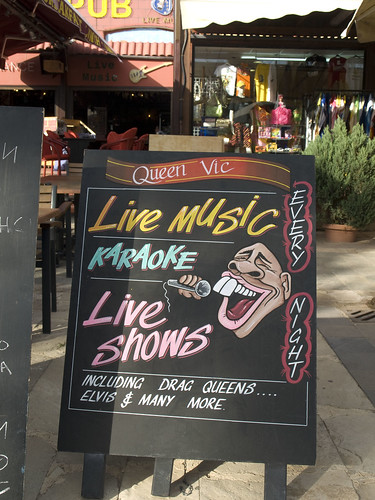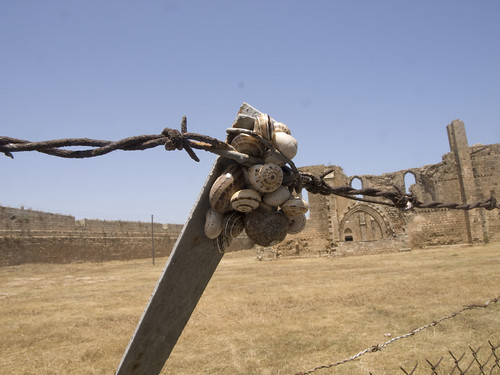Just over two years ago, I lost my grandmother. She'd fallen and broken her hip bone, they operated on her and apparently it went well. 'Yiayia' was always afraid of anything remotely related to death however (she'd stopped going to funerals decades earlier), so when she was in the clinic she decided that it was probably her time to be on her way. They said that she kept saying thing like "I'll be seeing my Kostis soon" (her dead husband). I suspect that her death was partly due to her frail condition (she was 96) and partly a conscious decision-she'd simply had enough.
In her final years her eyesight had started to fail her, and she gradually lost her hearing. I loved her very much though, and she always recognised me and asked me whether I'd found a wife yet (Firfiri you are not alone). She only knew how to read a little bit, hadn't gone to school, worked the fields and raised children all her life. She always sat on an old-style chair outside her door, looking at the gate. Every time I passed from there, on a bicycle (childhood), moped (teens) and more recently in a car, I'd turn my head and see the figure clad in black sitting there, enjoying the breeze. It was reassuring somehow, as if my own roots were still secure, firmly in the ground.
When my brother rang and told me the bad news, I kept my composure up until I hung up. I then cried bitterly, like I'd never cried before. By the time I heard the news they'd already gone ahead with the funeral and it was all over. I never told them this, but I was upset that they didn't at least allow me a day to get there for the funeral. I don't know, somehow I wanted to be there and go through the grieving process with the family, and especially my dad who lost his mum.
When I go to Cyprus, we always gather for family feasts. I think it was last year, or perhaps the one before, when I noticed that my brother's children are now sitting where my brothers and I used to sit when we were children, at the edge of the table. Where my parents/uncles and aunts used to sit is where our generations sits now. My parents sit where my grandmother used to sit, as if the conveyor belt of life is slowly but surely moving us from one end of the dining table to the other. The dining table itself is life. I must say that the hairs on the back of my neck stand upright every time I think of the concept. Life is a dining table, and as we grow older, we shuffle down to make space for the next generation. Figure that one out.
Every time I pass outside yiayia's house, I always look, as if I am still expecting her figure to be sitting there.
[Apologies it's a bit of a sad one-I promise you a nice recipe to make up for it]





